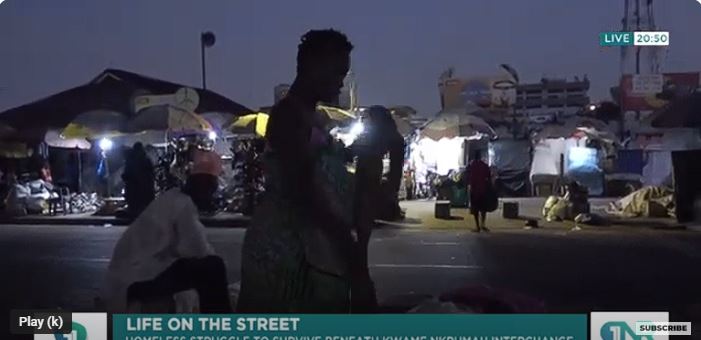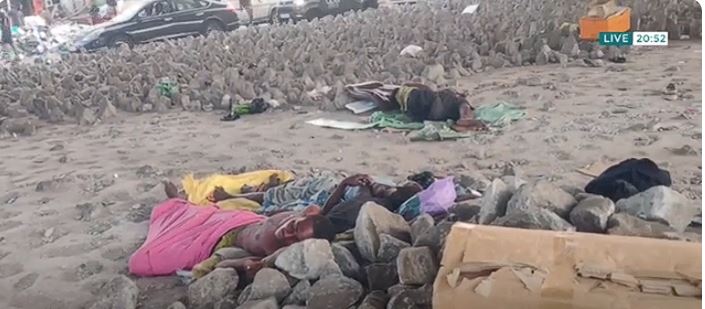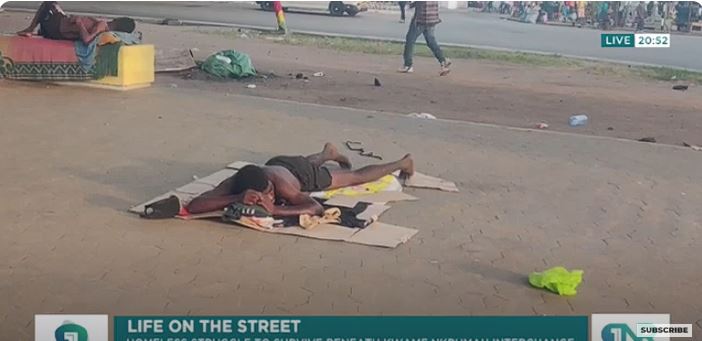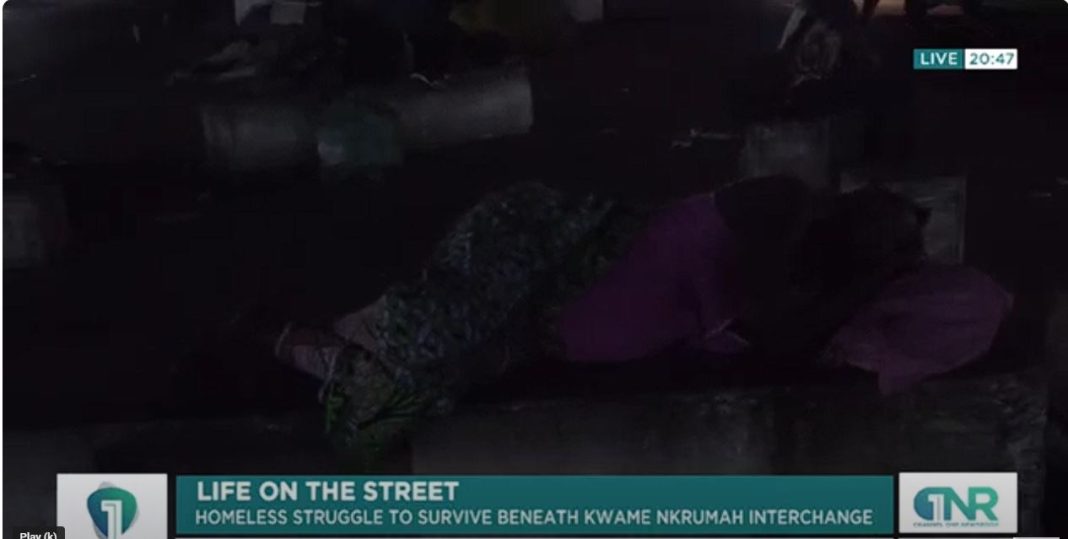Beneath the towering Kwame Nkrumah Interchange, a silent struggle unfolds daily. Dozens of homeless individuals seek refuge on the cold pavement, battling hunger, harsh weather, and an uncertain future.
For them, survival is a daily fight, and hope remains a distant dream.
At the break of dawn, 5 a.m., Felicia is still asleep. The hard concrete beneath her offers no comfort, and the surroundings are far from ideal. More concerning is that she is eight months pregnant, with no proper shelter, no source of steady income, and no support system. Once a bright home economics student with aspirations, Felicia’s life took an unfortunate turn, leading her to the streets.
“I do not even recognize myself anymore. When I see my reflection in the mirror after taking a bath, I ask myself, ‘Is this me?’ But I keep telling myself it is not too late. I will survive this. I will make it in life,” she said, clinging to faith amid despair.
Felicia’s story is not unique. The area beneath the interchange has become home to many who have nowhere else to go. Their presence, however, has become a concern for passersby, some of whom view them as a nuisance.
Yet, some residents express sympathy for the homeless community, acknowledging the hardships they face.
“I feel sad when I see them in such situations,” said Isaac Nyamebehyere, a mate working in the area. “Some of them turn to stealing because they have no means of survival. But not all of them are bad. Some come to us begging for money for food, and we help them because you never know what could happen to you tomorrow.”
Kamel Abubakar, another resident, echoed similar sentiments. “It’s heartbreaking to see them lying here. If you have nowhere to sleep in Accra, you end up under bridges or on the roadside, which can be dangerous. I wish I could help, but I am struggling myself.”
As Felicia’s due date approaches, her worries deepen. She already has a two-year-old son, Benedict, who clings to her side. She fears she will be unable to care for another child and is considering giving her unborn baby away to increase the chances of survival for the rest of her family.
“By next month, I will give birth, and the rains will start falling. Where will I keep my newborn? I think about this every night. Where will I get hot water to bathe the baby? Where will I even deliver? I might go to Korle-Bu and hope someone there will listen to my story and take the baby so I can focus on raising my son,” she confessed, her voice heavy with sorrow.
Her plight is mirrored by many others in the area. Around the Neoplan Station and in front of the Ghana National Fire Service office at Circle, similar scenes unfold people sleeping on bare concrete, others curled up on stone pathways, hoping to make it through another night. For Soglo Doris, a woman who left Jasikan in search of better opportunities, life in Accra has been nothing short of a nightmare. She once had a job selling water but had to stop due to low earnings. Now, she roams the streets in search of work while caring for her son, whose father abandoned them.
For Soglo Doris, a woman who left Jasikan in search of better opportunities, life in Accra has been nothing short of a nightmare. She once had a job selling water but had to stop due to low earnings. Now, she roams the streets in search of work while caring for her son, whose father abandoned them.
“I came here to find a job. I found one in the market, but we were later evicted. Now, I am still searching for work, but nothing has come my way. I am relying on God,” she said, holding her son on her lap.
Despite the despair, some still hold on to hope. Felicia, though battered by life’s hardships, hopes to reunite with her family one day.
“Wherever my family members are, I plead with them to come to my aid. I know I didn’t listen to my parents’ advice, and I regret my choices. But I ask for their forgiveness. I just want a second chance,” she said, tears streaming down her face.
For now, life under the overpass continues. As Accra’s skyline evolves, the lives of those beneath its roads remain unchanged—defined by uncertainty, survival, and a longing for a better tomorrow.
